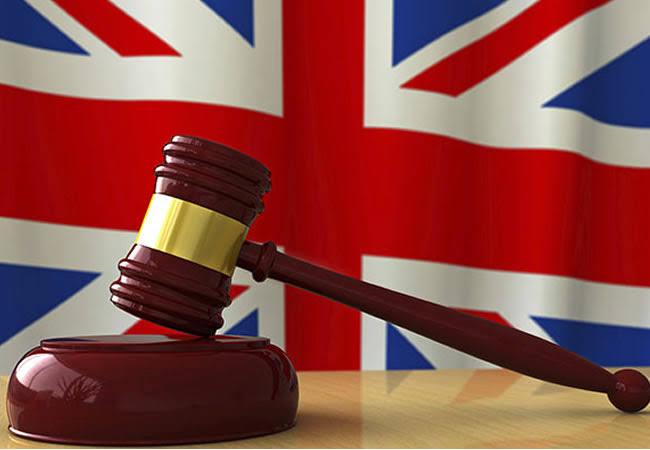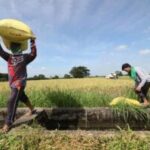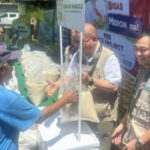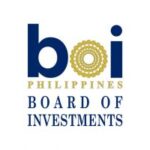On Wednesday, October 22, 2025, the UK Supreme Court ordered Process and Industrial Developments (P&ID), an offshore company, to pay £44 million in legal costs to Nigeria. The five-member panel, led by Supreme Court President Lord Reed, ruled unanimously that P&ID must pay the costs in pounds sterling, and not in Nigerian Naira, as the company had requested.
With the ruling on Wednesday, the Supreme Court confirmed earlier rulings by the UK Commercial Court and Court of Appeal that Nigeria's legal expenses, incurred and paid in sterling, should be recovered in the same currency.
ALSO READ: EFCC seeks support from P&ID, Interpol against extradition of treasury looters
how it started
The Federal Republic of Nigeria and P&ID entered into a 20-year Gas Supply and Processing Agreement (GSPA) in 2010, under which the government agreed that it would supply natural gas (wet gas) to P&ID.
In return, P&ID agreed to process and return seventy-five percent of the wet gas as lean gas, which could be used for energy production. P&ID agreed to build two or more refining plants with supporting facilities to process the wet gas. This construction was never done.
Who supervised the signing of the agreement?
A former petroleum resources minister at the time and his legal advisor oversaw the signing of the GSPA.
According to court documents and media reports, top government officials, living and dead, were involved in collecting bribes in the Nigeria vs. P&ID case. Those reportedly involved include former Minister of Petroleum Resources, late Rilwanu Lukman, former NNPC official Taofik Tijani, former director of legal services in the ministry, late Grace Taiga. Theophilus Danjuma, an influential Nigerian, was also implicated, among others.
At the center of the case was Grace Taiga, a former director of legal services in the Nigerian Ministry of Petroleum Resources.
She served from 2004 to 2010, during which time she was key in negotiations on the GSPA between P&ID and the Nigerian government.
According to court documents and media reports, Taiga was involved in collecting bribes from P&ID in exchange for his support for the GSPA.
Bank statements seized by Nigeria's Economic and Financial Crimes Commission (EFCC) revealed that a series of payments of over $20,000 were made from companies linked to P&ID into his offshore bank accounts while he worked at the ministry in 2010.
He is also accused of ignoring due process in providing legal advice to the GSPA.
In 2019, Taiga was arrested by the EFCC on charges of money laundering and fraud.
He was released on bail and was pending trial at the time of his death in September 2023. Taiga was never convicted of any crime in relation to the Nigeria vs. P&ID case. He died before the trial could be completed.
Also read: P&ID: UK court orders release of $200 million to Nigeria
Litigation has begun
In 2012, P&ID alleged that the federation had not fulfilled its obligations in relation to the GSPA, and claimed damages for lost profits in the region of $6 billion.
But, the Nigerian government said that P&ID has spent little or no money preparing to meet its obligations.
According to the government, “P&ID claims to have invested $40 million in the project, but has shown no evidence to prove this. P&ID never employed anyone for preparatory work, nor did it own any land at the time. It had no intention of completing its share of the GSPA.
“Unfortunately, the GSPA is an example of officials using sham commercial deals to fraudulently extort much-needed assets from Nigerians.”
In 2019, an arbitral tribunal in London awarded the firm $9.6 billion in damages against Nigeria, a figure that later rose to more than $11 billion with interest.
The decision immediately put Nigeria's foreign assets and reserves under threat of seizure, prompting a coordinated government response.
Concerned about the threat to the country's reserves, the then Governor of the Central Bank, Godwin Emefiele, approached President Muhammadu Buhari for approval to allow the bank to finance and coordinate the legal defense of Nigeria.
Buhari accepted the request, directing the Attorney General of the Federation (AGF), Abubakar Malami, to work with the CBN in pursuing the appeal.
When several leading British law firms declined to take the case because the appeal period had expired, Mishcon de Reya LLP accepted the brief, relying on section 68 of the UK Arbitration Act, which allows arbitral awards obtained fraudulently to be challenged.
The case began in 2020, and by August 2023, the UK Commercial Court won a surprise victory for Nigeria, ruling that P&ID had secured its contract through bribery and fraud.
That decision overturned an earlier award and saved Nigeria from paying billions of dollars in damages.
Justice Robin Knowles, who presided over the 2023 case, found that P&ID representatives had bribed Nigerian officials and unlawfully possessed privileged government documents to further their claims.
The judge also criticized P&ID's two London-based lawyers, Trevor Burke Casey and Seamus Andrews, for making an “unsafe decision” to access Nigeria's internal documents, which they were not entitled to see.
He said that if P&ID was successful both men would receive massive individual rewards, £850 million and £3 billion respectively.
Their cases were subsequently referred to the Bar Standards Board and the Solicitors Regulation Authority for disciplinary action.
Following the 2023 victory, Nigeria incurred substantial legal costs of £44.2 million, paid in 116 invoices between November 2019 and November 2024.
Also read: UK court orders P&ID to deposit £1.5m for appeal against Nigeria
P&ID later appealed the order to pay those costs in sterling, arguing that they should be paid in Naira to prevent Nigeria from benefiting from favorable exchange rates, especially following the sharp depreciation of the Naira following its float in 2023.
In a joint judgment delivered by Lord Hodge and Lady Simler, with the concurrence of Lords Reid, Stephens and Richards, the Court held that legal costs are not compensatory in nature, but rather a statutory compensation for expenses reasonably incurred during the litigation.
According to the judges, “Since Nigeria had incurred the liability and paid in sterling, the court should order costs in sterling.”
The Court further emphasized that costs awards are distinct from damages in contract or tort cases.
It says the costs are discretionary and are intended to make a reasonable contribution to legal expenses, not to compensate for financial losses.
The judges warned that adopting the P&ID position would lead to unnecessary and costly litigation over how litigants finance their legal fees.
He emphasized that there was no legal requirement under the Senior Courts Act 1981 or the Civil Procedure Rules 1998 for costs orders to be made only in sterling, but confirmed that awards should generally reflect the currency in which legal services were billed and paid.
Sources close to the matter confirmed efforts behind the scenes that ensured Nigeria's success.
“This decision shocked the country to its core. But the former CBN Governor arrived at the scene and announced that Nigeria did not have the money to pay such a huge sum.
“They decided to fight rather than give in to fraudsters who wanted to burden generations of Nigerians with fraudulent loans,” the source said.
The UK Supreme Court decision now consolidates Nigeria's victory, confirming its right to recover its full legal costs in sterling and bringing final closure to the case that has dragged on for more than a decade.











